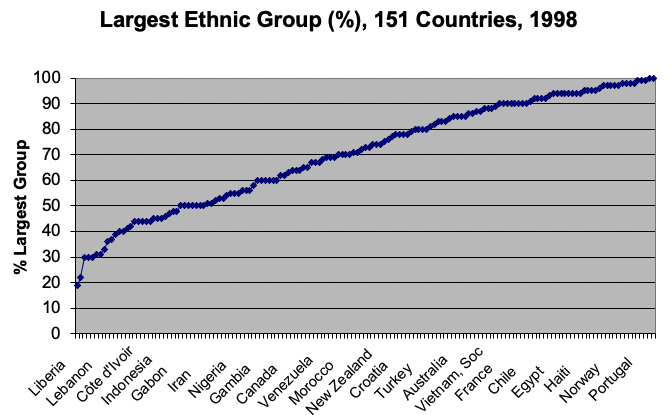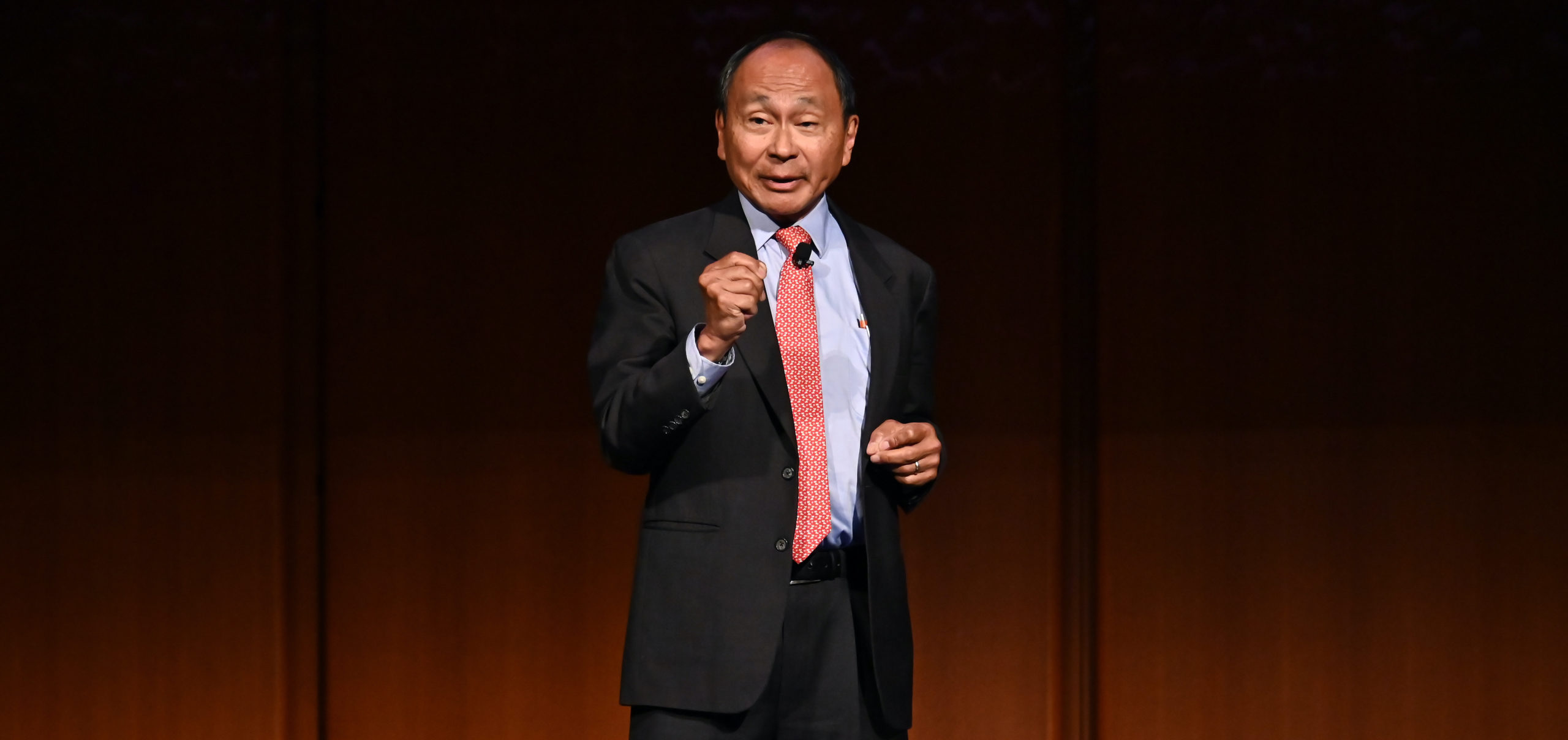In an insightful piece over at Foreign Affairs entitled ‘Liberalism Needs the Nation’, Francis Fukuyama argues that abstract universalist liberalism is too thin to compete with the Right-wing nationalism of a Le Pen, Trump or Putin, but that an inclusive, state-led form of nationhood can keep the populist wolf from the door. This is a point he made some weeks earlier in an interview with UnHerd, and as a political liberal, I share Fukuyama’s concern at the apparent erosion of procedural liberalism. I agree with him that liberal democracy can generally only operate at the nation-state level.
Yet Fukuyama’s account fails to peer beneath the hood of nationalism to acknowledge the importance of an often assimilative majority ethnicity in underpinning stable national identities. He also overlooks the post-1960s Left-modernist capture of national identity in the West, and its attendant corruption of liberalism.
Fukuyama correctly observes that liberalism emerged after the 17th century Wars of Religion in Europe as a doctrine of toleration. To prevent people tearing each other apart over dogma, liberalism instills the idea of civil rights, backed by law, to ensure that differences are respected. Liberalism gained traction within the constitutions of nation-states which, in post-1945 Europe, had clear ethnic majorities. Indeed, classical liberal theory assumed a relatively homogeneous nation-state.
While post-1945 European nation-states were more ethnically homogeneous than those in much of the world, it remains the case that 70% of the world’s major countries have an ethnic or pan-ethnic (i.e. Hindu Indians, white Americans) majority, with many of the rest (such as Iran or Indonesia) containing dominant plurality groups of 40 to 50%, with only a handful, like Lebanon or Liberia, being deeply diverse.

While Fukuyama lauds the opening up of immigration in post-1960s Anglo settler societies, he fails to appreciate that, apart from the removal of racial bans, this was not a piece of neutral procedural liberalism. Instead, it represented an attempt by western states to privilege a Left-modernist ideal in which diversity is not just tolerated but actively promoted.
This subtle difference, between toleration and celebration, is in fact an enormous leap. Instead of sticking with the liberal principle of nations’ right to free association, with agnosticism about what form the nation might take or how it chooses new members, the new cosmopolitan-multicultural nationalism plumped for diversity and change over ethno-cultural continuity. This was rooted in earlier Left-modernist ideas of asymmetrical multiculturalism whereby established White Anglo-Protestant majorities were deemed boring and repressive compared to expressive, exotic and downtrodden ethnics (initially European immigrant groups).
In order to enforce this ‘thick’ vision of the good life, the cultural impact of immigration policy was ruled off-limits as a taboo topic. In Canada, the 1971 Multiculturalism Act enshrined Left-modernism in law, compelling the government to ‘promote’ and ‘enhance’ difference as well as the idea that the country’s 20% non-British and non-French minority was an ‘invaluable resource’. The country’s British and Protestant heritage was essentially banished from the official narrative. This was an agenda of transformation, not neutral liberalism.
Meanwhile, American liberalism started to move, after Lyndon Johnson’s Howard University speech of 1965, from an emphasis on equal civil rights to an ideological regime of enforcing equal outcomes: whether in the form of affirmative action or in the guise of the diversity industry, which boomed as early as the 1970s. The notion of an ethnic majority melting pot was ditched in favour of multiculturalism, diversity and, later, anti-whiteness.
Over time, the Left-modernist ethos has grown increasingly strident in elite western circles. Progressive illiberalism began with affirmative action in the 70s, cooked up political correctness and speech codes in the 90s, and metastasised into cancel culture and anti-whiteness in the 2010s.
Fukuyama is right that liberalism is under pressure. But he fails to appreciate that Left-modernism has corrupted liberalism, hijacked the national identity of western countries and undermined the ethnic majorities which lend stability to the national identities he values.











Join the discussion
Join like minded readers that support our journalism by becoming a paid subscriber
To join the discussion in the comments, become a paid subscriber.
Join like minded readers that support our journalism, read unlimited articles and enjoy other subscriber-only benefits.
Subscribe